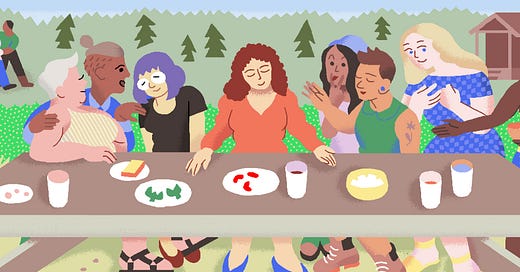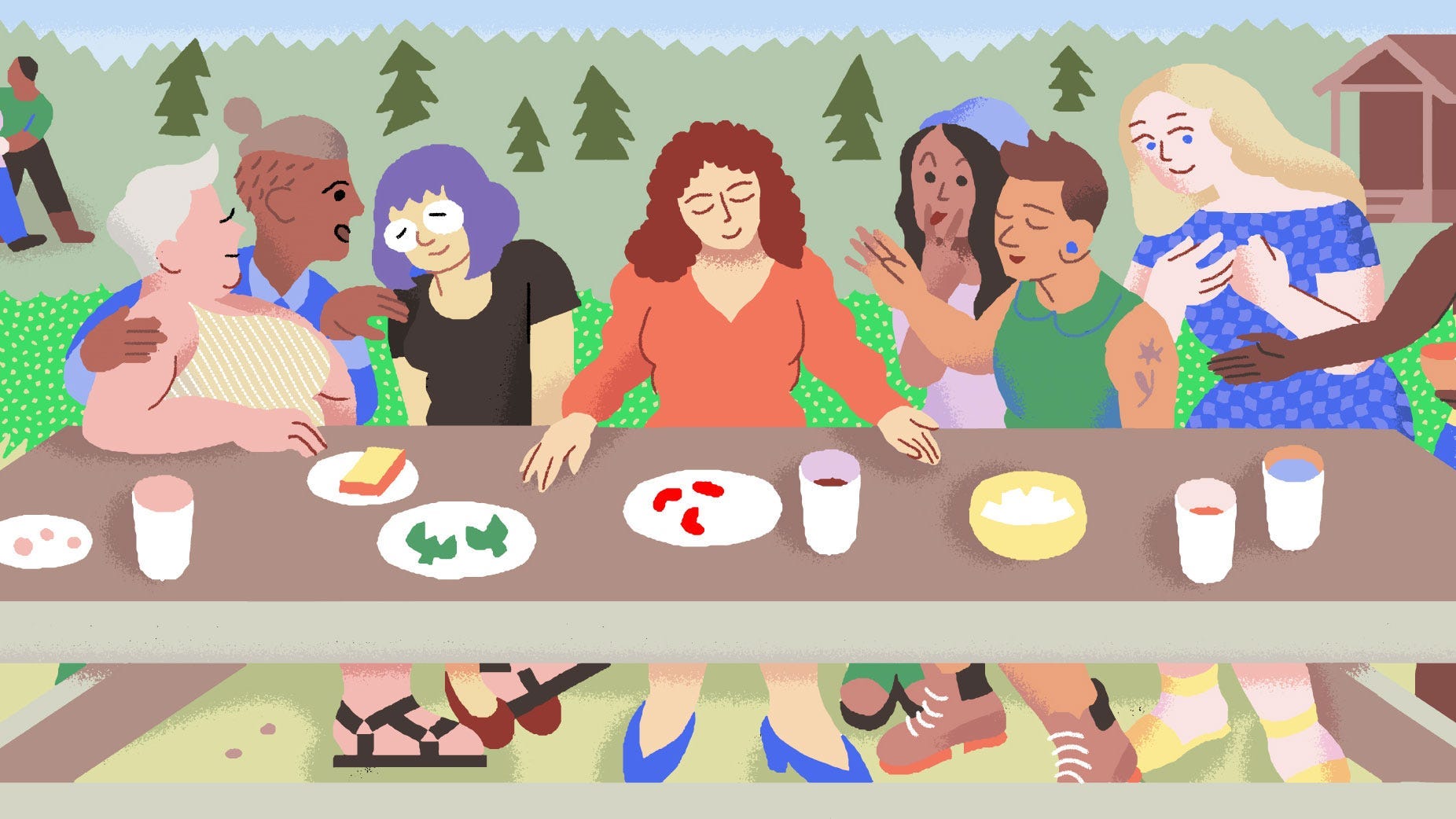I Found God at Queer Summer Camp
I left the evangelical church when I came out as a lesbian. Then I found faith again in the place I least expected.
When I signed up to spend five days at queer camp, surrounded by 400 other queer people in the mountains of Ojai, California, going to church was the last thing on my mind. Jesus might be a queer witch, as one camp friend said, but my faith was a hollowed-out relic of a past life, left in the dust with a straight marriage and the dozens of friends and family that stopped speaking to me when I came out as a lesbian.
Yet, for all that I don’t consider myself a Christian anymore, here I am, in the middle of church, which is really just a bunch of queer folks who got up early on Sunday morning to read scripture and poetry in a small dining room.
“Where two or more are gathered in my name, there I am in the midst of them,” Jesus says in the Gospel of Matthew. I look around the room and see gorgeous queers with piercings and undercuts and bra straps sticking out, drinking mimosas and talking and laughing and finding room fo…
Keep reading with a 7-day free trial
Subscribe to Narratively to keep reading this post and get 7 days of free access to the full post archives.




